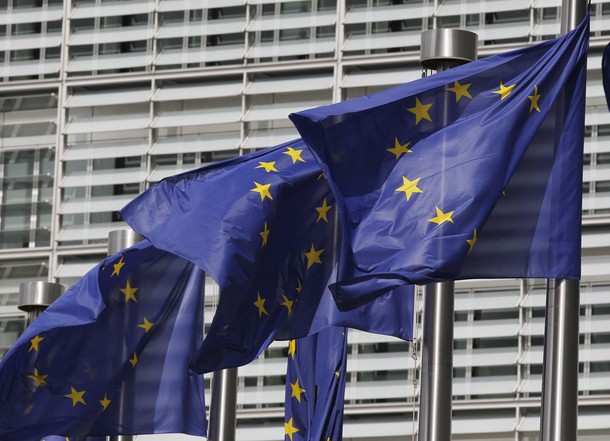
From Bret Stephens, the Wall Street Journal: The hardest fact on which postwar Europe was founded was military necessity, crisply summed up by Lord Ismay’s famous line that NATO’s mission was "to keep the Russians out, the Americans in, and the Germans down." The next hard fact was hard money, the gift of Ludwig Erhard, author of the economic reforms that created the Deutsche mark, abolished price controls, and put inflation in check for generations. The third hard fact was the creation of Jean Monnet’s common market that gave Europe a shared economic—not political—identity.
The result was the Wirtschaftswunder in Germany, Les Trente Glorieuses in France and il miracolo economico in Italy. It could have lasted into the present day. It didn’t.
In 1965, government spending as a percentage of GDP averaged 28% in Western Europe. Today it hovers just under 50%. In 1965, the fertility rate in Germany was a healthy 2.5 children per mother. Today it is a catastrophic 1.35. During the postwar years, annual GDP growth in Europe averaged 5.5%. After 1973, it rarely exceeded 2.3%. In 1973, Europeans worked 102 hours for every 100 worked by an American. By 2004 they worked just 82 hours for every 100 American ones.
It was during this general slowdown that Europe entered the convenient fiction phase.
There was, for starters, the convenient fiction that if you just added up the GDP of the European Union’s expanding list of member states, you had an economy whose size exceeded that of the United States. Didn’t this make "Europe" an economic superpower? There was the convenient fiction that Europe didn’t need robust military capabilities when it could exert global influence through diplomacy and soft power. There was the convenient fiction that Europeans shared identical values and could thus be subject to uniform regulations governing crime and punishment. There was the convenient fiction that Continentals weren’t lagging in productivity but were simply making an enlightened choice of leisure over labor. . . .
What comes next is the explosion of the European project. Given what European leaders have made of that project over the past 30-odd years, it’s not an altogether bad thing. But it will come at a massive cost. The riots of Athens will become those of Milan, Madrid and Marseilles. Parties of the fringe will gain greater sway. Border checkpoints will return. Currencies will be resurrected, then devalued. Countries will choose decay over reform. It’s a long, likely parade of horribles.
Where is the Europe of Ismay, Erhard and Monnet? It’s there in memory, if anyone cares to recover it. Give it another 50 years, and maybe someone will. (photo: Reuters)
Image: reuters%209%2020%2011%20EU%20flags.jpg
